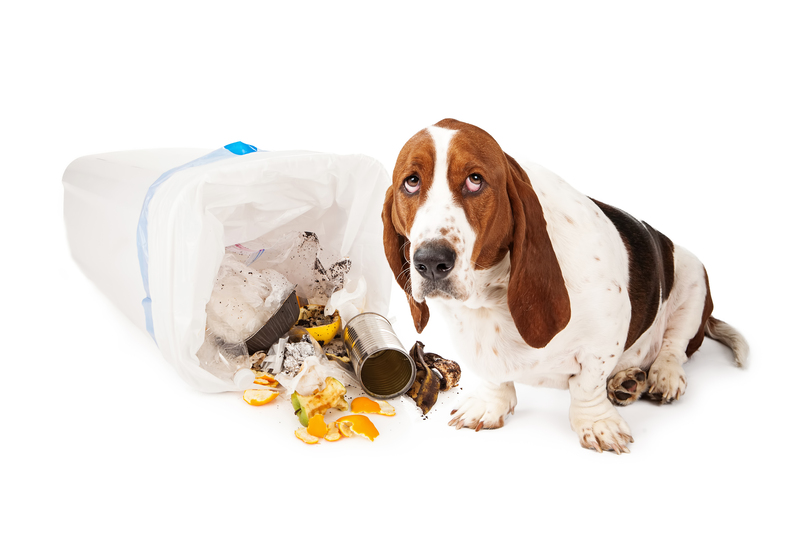Tips for a Sustainable Life Without Plastic
Posted on 03/03/2025
Plastic has become an undeniable part of modern life. From packaging to household items, it's everywhere. However, the environmental impacts of plastic pollution are becoming increasingly severe, leading many people to seek more sustainable lifestyles without plastic. Below, we explore various tips and methods to help you transition to a life less dependent on plastic.
1. Understanding the Problem
Before taking steps toward a plastic-free life, it's essential to understand why it's so critical. Plastics take hundreds of years to decompose, filling up landfills and polluting oceans. They break down into microplastics, which are harmful to wildlife and can even enter the human food chain. Knowing the extent of the problem can be a powerful motivator for change.

2. Start Small
One common mistake people make when transitioning to a plastic-free lifestyle is attempting to change everything all at once. This can be overwhelming and unsustainable. Instead, start small. Replace single-use plastics like straws, plastic bags, and disposable cutlery with their reusable counterparts.
3. Evaluate Your Consumer Habits
An important aspect of reducing plastic waste is evaluating your buying habits. Opt for products with minimal or no plastic packaging. Choose items made from biodegradable or recyclable materials. For example, buy bar soap instead of liquid soap in plastic bottles, or purchase items in bulk to reduce overall packaging.
4. Use Reusable Bags
One of the easiest and most effective ways to cut down on plastic waste is to use reusable bags. Keep a few in your car or by your front door, so you remember to take them with you when shopping.
5. Glass and Metal Containers
Switch out your plastic food storage containers for glass or stainless steel ones. These materials are not only better for the environment but also safer for your health. They don't leach harmful chemicals into your food, unlike some plastics.
6. Cloth Over Plastic
Another simple switch is to use cloth. Consider using cloth napkins, towels, and even diapers instead of their disposable plastic alternatives. Not only are these more sustainable, but they also tend to be more durable and cost-effective in the long run.
7. Bring Your Own Cup
If you can't do without your daily coffee or tea, bring your own cup to the caf?. Many coffee shops offer discounts if you bring your own reusable cup. This small habit can significantly reduce your plastic usage over time.
8. Be Mindful Of Your Purchases
When ordering food or drinks, specify that you don't need plastic cutlery or straws. Encourage your favorite restaurants and cafes to adopt more sustainable practices by using biodegradable or compostable alternatives.
9. Homemade Over Prepackaged
Make more food at home rather than relying on prepackaged meals and snacks. This not only reduces plastic waste but also tends to be healthier and more cost-effective. Store homemade goods in reusable containers for an added bonus.
10. Shop At Farmers Markets
Farmers markets are a great place to purchase fresh produce without the plastic packaging typical in grocery stores. Moreover, the food is often local and organic, further reducing your carbon footprint.
11. DIY Cleaning Products
Making your own cleaning products is another excellent way to reduce plastic waste. Many store-bought cleaning products come in plastic bottles that require disposal after use. Homemade alternatives can be stored in reusable glass bottles and are often less toxic.
12. Personal Care Items
Switch to personal care items that do not involve plastic packaging. Solid shampoo bars, bamboo toothbrushes, and safety razors are all excellent alternatives. These products are just as effective and significantly less wasteful.
13. Educate and Advocate
The change towards a plastic-free life becomes more impactful when shared. Educate others about the importance of reducing plastic waste and advocate for broader societal changes like plastic bans or improved recycling programs. Your voice can make a difference.
14. Recycle Properly
While the ultimate goal is to reduce plastic use, it's vital to recycle the plastic you do use correctly. Ensure you're following local recycling guidelines to maximize the effectiveness of these programs.
15. Support Sustainable Brands
Put your money where your values are by supporting brands prioritizing sustainability. Look for companies using biodegradable packaging or offering product refills in store. Sustainable brands often go the extra mile to consider their environmental impact, making conscious consumer choices much easier.
16. Compostable Alternatives
Replace common plastic items with compostable alternatives. For example, use compostable trash bags instead of regular plastic ones. These products are usually made from plant-based materials and break down more easily, contributing to a lower environmental impact.
17. Second-Hand Shopping
When buying clothing or household items, consider second-hand options. Thrift stores, online marketplaces, and yard sales often have quality items that don't come with the plastic packaging new items do. This not only reduces plastic waste but also curtails the demand for new products.
18. Mindful Traveling
Travel often comes with a lot of plastic waste, from toiletry bottles to disposable cutlery. Plan ahead by packing reusable items such as travel-sized containers for toiletries, cloth napkins, and a collapsible water bottle.
19. Taking Care of Your Wardrobe
Buy clothing made from natural fibers like cotton, wool, and linen instead of synthetic fibers like polyester or nylon, which shed microplastics. Taking good care of your clothes so they last longer also means buying fewer items, contributing to a more sustainable lifestyle.

20. Participate in Cleanup Drives
Joining or organizing local clean-up drives in your community can be an eye-opening and rewarding way to understand plastic pollution's impact. It offers a hands-on way to contribute to the solution and inspire others to follow suit.
Conclusion
Living a sustainable life without plastic may seem daunting, but it's achievable with mindful effort and incremental changes. Each small step contributes to a larger impact, helping to reduce the plastic pollution harming our planet. Whether it's through bringing your own cups and bags, supporting sustainable brands, or making more homemade goods, every action counts. By adopting these tips for a plastic-free life, you're paving the way for a healthier, more sustainable future for all.
Through these strategies, you can significantly reduce your plastic footprint while encouraging others to do the same. The journey to a plastic-free life is both rewarding and necessary for the well-being of our planet.



